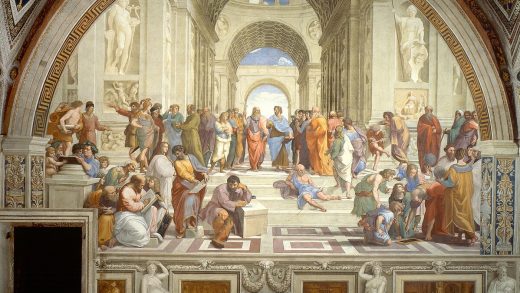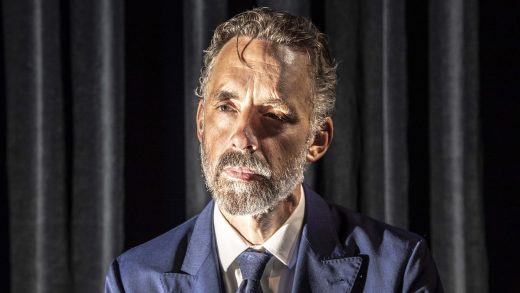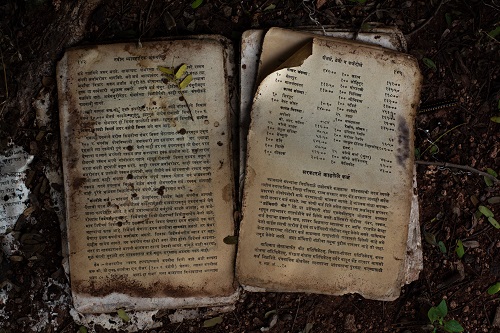I write now, long after the song of minstrels has been forgotten. I write now, long after the ink of poets has gone dry. I write now, long after the bard has thused and thenced his last tragedy. I write now, of old words, ancient tenets, and ill-conceived hallows of a time long past. I write now, holding the bane of my existence in one hand and the instrument of my greatest desire in the other, for a love that defied reason, a mind that refused peace, and… and a heart that longed for eternity.
.
.
.
I’ve often wondered what it is that makes the deep grey hue of an overcast sky so hauntingly solemn. You can never grow tired of the warmth that a sunlit afternoon spurs, the calm that permeates your whole being as dozens of light beams pierce through the shutters and drown the room in a yellowish haze. But there is something in the deepest recesses of your being craving the lonesome, disconsolate feeling of existential dread that comes on whenever the condensed vapor of a premature downpour, startling in its arrival and hasty in its departure, forms an arc of reluctant droplets on your window.
Stranger still is the stifled glow that suffuses the room in a ghostly, colorless pattern. As if the light of the world has been blunted, there but not quite as pervading as before, to remind you of an unsettling truth. For those blissfully unaware of this truth, that image is a harbinger of despair, an unpleasantness to be weathered as the mind tries to keep itself together against the sudden rush of melancholy. And for those addicted to this treacherous truth, this oblique insight that conveniently eludes proper understanding, the view is a poetic juxtaposition of everything life has to offer.
There was a time when I looked out the window and saw only the color of the blue sky. I walked the streets and only felt the solid presence of concrete under my feet. I ran down the walkway and laughed jovially as the wind brushed against my face. There was a time when rain was just rain, the chirruping of grasshoppers a regular sound in my ears, and this world a closed book of wonders, ready to be opened, seen, and experienced.
At least, that’s how I like to remember those years. The child grows up not feeling the overbearing weight of existential dread on his shoulders. For the child, the stifled light of the overcast sky is just a variance of this enormously varied, wondrous world — and not an invitation to suffering. The child knows nothing of the treacherous pitfalls of thought, the inescapable plight of determinism, the odious inevitability of human weakness. The child grows up in a universe where agony remains undefined, and anxiety is just the feeling of butterflies in your stomach when you’re anticipating your birthday or next week’s amusement park outing. The child has no grasp of ideology, purpose, or all the numerous specters of human cognition.
The child is spared all this needless suffering if he’s shielded from it. But what happens if a child eyes the murky, sunless day and is overcome by profound sadness? What tugs more on one’s heartstrings than the sight of a kid whose eyes belie his age?
.
.
.
Many years ago, amid my constant mental struggle to find a sure footing in this treacherous world, at a time when my friends accused me of being cold, detached, and otherwise irreverent towards the subtle overtones of human interaction, I came to know a clarity like I’d never felt before. It was as if everything in the world suddenly clicked together and it all felt right. I opened a page in my notebook then, and wrote with a surprising sense of foresight this rather esoteric paragraph,
I had been blind for a long time, my mind wandering a plain that had been roamed thousands of times already. But now that I can see again, I don’t know what to do with the infinity before my eyes.
Penning that down, the child smirked to himself. He had just come up with a brilliant sentence, of the kind he usually read in important-sounding books; you know, the kind literary snobs gush about almost non-stop. He did not know then, perhaps did not want to know, that the fleeting sensation he felt would define the majority of his life in the decade to come.
You see, most people, depending on the circumstances of their birth, may come to accept a singular purpose for their lives. A person born in a predominantly religious society, for instance, would grow to care with a singleminded alacrity about their fate in the afterlife. A person born an atheist, the so-called “critical thinking” intellectual, would attach themselves to a more pragmatic outlook. If it must be said, let it be said that the child was not leaning particularly toward any of the said philosophies, but he did know one thing about the afterlife.
He had realized that heaven is a world hollowed out of infinity.
And what can be said of infinity? It rebuffs the very disposition to a definition. It cannot be described, nor simulated for the senses. It might at once be a sliver of the divine and an infinitesimal dot holding in itself the very essence of existence and cognition. To know infinity is to understand that as we’re made of star stuff, so do we contain the constellations in our head. That we are, each of us, made of constellations.
Think of it like this. Dream of a night that needs no justifying, and a night when you feel compelled to write, where the ink is dry and the sheets are deprived of space, and there is no concept in mind so solid as to lend your hands strength to paint it out against our collective, inevitable demise. There you’ll have experienced conclusion, bereft of need, in passing moments of divinity.
And then, you realize that infinity contains in itself everything, and just as the divine can uplift you, its counterpart can bring you down. How would one even explain the mystifying, exhilarating feeling of this juxtaposition? How would you even explain that just as verifiably as these two poles attract and repulse each other in real life, so do the light and the darkness inside your mind? There locked in an eternal battle of wit over the planes of existence.
Many years later, I picked up the pen again one night and began to write.
I am scared, father. Scared to move. Scared to leap. Scared of falling. Scared of failing. A silenced suffering is nigh; I feel its shadow from afar, clawing its way to our doorsteps, waiting for the perfect moment to come out of hiding to strike us down. Why do the words fail me, father? Why can’t I see it clearly anymore? I hear it. I hear it. The silent sobbing. The silent sobbing in the night…
And the words… oh, the words. The words fly away from my mind, leaving me in this prison, confined. And the divinity that is left within me, is what I can give thee, father, to redeem me. Give me the sweet pang of release, and let my suffering, to at last, cease. For I shall make a last stand, muster my words, coat them in wit, A last beacon of hope that in a dark ocean is lit.
.
.
.
There are some in this world who believe that stories can be dangerous. That every story, in the context of its own narrative, can justify almost any form of thought or belief. I agree with that sentiment, not in an art-averse way, but in the sense that any idea could very well be a reality. And why wouldn’t the world be an amazing place where every thought that comes to being may very well become its own possibility?
And here you are confronted with it; the breadth of eternity, the pull of infinity. The light that never goes out. A universe held up in the fearful palms of entropy, tentatively reaching out a hopeful hand toward any who can quell the coldness that threatens to take over. A mind that contemplates all the things that should have been and were not, all things that will now not be. All the regrets and all the hopes. All the joy and all the sadness that drove them in life, undone in the untempered whirlwind of fate, in planes familiar or unbeknownst to us. How can these twisted, unpredictable tarots find meaning in minds that want what they know nothing about, and push away what they cannot understand?
The child was always an amalgam of all his doubts and fears, all his anxieties and insecurities, all his traumatic memories and overbearing sadness. The child spurned the very notion of love, grappled with his higher calling, and called the misgivings of his overwrought mind the parlor tricks of fate. The child hurts, but does not show it. He spends most of his nights running off to a faraway land of abstract ideals, stifling tears and praying for the coming of the dawn, waiting for someone to hear, waiting for someone to see. The child feels lost and cold. His arms have the strength of a young man, but his mind is pale and old; His eyes speak of a thousand years in sorrow, his memories carry pain wherever they go.
And still he waits, for someone to hear, for someone to see. To see his light. He pushes on because of the light.
The child pushes on, carrying the burden of they who see the world as it could have been. For the child… for the child… for the child has been…
He has been fighting this fight, for as long as he can remember; And that fading memory of light, is all that he can remember.





Mesmerising piece of writing
You’re too kind